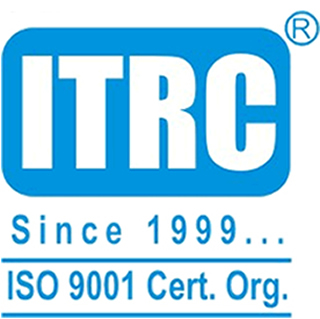BRICS Labour and Employment Ministers’ declaration adopted
Here is the text of the declaration adopted by BRICS Labour and Employment Ministers Meeting that concluded here today.
- Building responsive, inclusive and collective solutions
- BRICS Labour and Employment Ministers’ Declaration
- Employment generation, social protection for all and transition from informality to formality
Introduction
1. We, the Ministers of Labour and Employment from the Federative Republic of Brazil, the Russian Federation, the Republic of India, the People’s Republic of China and the Republic of South Africa, met at New Delhi, India, on September 27-28, 2016, for the Second BRICS Labour and Employment Ministers’ Meeting to strengthen intra-BRICS coordination, enhance information sharing, discuss and agree upon specific areas of cooperation in our endeavor to address labour and employment challenges faced commonly by BRICS member states.
2. Addressing labour, employment and social issues is imperative for fostering strong, sustainable and inclusive growth. We recognize that the constitution of the BRICS Employment Working Group (BEWG) initiated by the Russian Presidency is an important step for facilitating focused deliberations on BRICS labour and employment issues and achieving the broad objectives of quality and inclusive employment, formalization of labour markets, and exchange of labour market related information.
3. We have collaborated successfully in the ILO Governing Body and International Labour Conference on specific issues of common interest and we pledge to strengthen this collaboration to further promote common objectives at other international fora.
4. We recalled our meeting hosted by India on the sidelines of the International Labour Conference in June 2016 where we discussed issues of common interest to the group such as employment generation, small and medium enterprises (SMEs), transition to formality, and sharing of good practices.
5. Wehile acknowledge the importance of global supply chains and its contribution to job creation. We recognizeing current challenges in addressing labour issues in global supply chains. we beli As a group we will participate in the discussions onion global supply chain and endeavour to evolve our approach towards the new policy options.
6. As key operational areas, the BRICS member states will focus on employment generation, formalization of labour markets and social protection.
Employment Generation
7. Quality employment plays a central role in ensuring sustainable development and is at the core of the 2030 Development Agenda. In promoting inclusion and greater equality in the labour market, a top priority for BRICS member states is the generation of adequate decent and productive job opportunities, fair wages and adequate social protection systems for all, including floors. This, will in turn help in tackling poverty and lead to sustainable growth.
8. Technological revolution and structural changes require adequate labour resources. We recognize the importance of addressing labour mobility issues, which can bring potential benefits to our economies. We will focus our analyses at the institutional arrangements and social networks facilitating labour mobility and on forecasting of the labour market needs and the labour force availability.
9. We resolve to assist each other in sharing best practices in implementing policies and programmes that encourage innovation and entrepreneurship for employment generation. We intend to strengthen our public employment services to help our labour force, particularly the youth to find employment opportunities. We are also committed to strengthening labour market information systems based on each other’s experience.
10. We resolve to improve the employability of our workforce through modernization of skills development systems and life-long learning, which allows workers to remain relevant in the world of work environment that is changing fast due to technological revolution. We believe that expanding and improving education and formal training is of paramount importance to tap the benefits of innovation and to increase productivity, which shall lead to decent jobs.
Formalization of Labour Markets
11. Informality in the labour market remains a big challenge for all BRICS member states. Informality is often linked to low income jobs, lack of social protection and insufficient access to basic services. Recognizing the multiple issues in our national labour markets context, we are committed to tackling both the existing as well as emerging forms of informality. Consistent with the objectives of the ILO Recommendation No.204, we aim at improving the livelihood of workers engaged in the informal economy and facilitating their transition to the formal economy, while at the same time enhancing the productivity and competitiveness of enterprises.
12. We encourage the adoption of measures to enhance employability of workers in the informal economy through expanding social security, skilling and re-skilling of the workforce and adopting amongst others of a regulatory environment, which promotes formalization through easier compliance and adequate safeguards for labour rights.
13. We acknowledge various innovative approaches that have been implemented in BRICS member states aimed at reducing informality and facilitating the access of workers to social protection and to formal markets and we pledge to continue our efforts on implementing such actions.
Social Protection
14. We recognize that a crucial way in which governments can positively influence labour market outcomes and reduce exclusion and poverty is by providing social protection to its workers. Those who work, and those who are too young or old or unable to work, require protection from idiosyncratic and economy-wide shocks and unanticipated events.
15. We recognize the innovative capacity of our nations in responding to their particular national circumstances and evolving social protection systems that aim to strike the balance between work-incentives, improving human capital and income protection. We resolve to undertake policy measures in a comprehensive manner, with particular attention to including those in the informal economy and outside the scope of the existing schemes.
16. We support designing and implementation of comprehensive social security systems that are effective, equitable, economically sustainable and address the needs of the society. We therefore endorse the portability of social security benefits for migrant workers encourage bi-lateral social security agreements amongst the BRICS member states and work towards developing a general framework for cooperation.
Way Forward
17. We reiterate our commitment, in line with the Sustainable Development Goals 1 and 8, to continue to promote inclusive and sustainable growth, employment and decent work for all with a view to end poverty in all its forms in BRICS member states by 2030. In doing this, we acknowledge all the current initiatives taken including commitment towards ensuring decent work for all, formalization of the informal economy and the extension of social protection.
18. We are committed to take steps to establish a network of lead labour research and training institutions in BRICS member states for undertaking joint research and training activities, capacity building of various stakeholders and exchange of information in areas of expertise, with the cooperation of international organizations in particular the ILO.
19. We thank our social partners for their inputs in addressing labour and employment challenges. We intend to strengthen our tripartite social dialogue processes for advancing labour market development and promotion of stronger labour market outcomes.
20. We recognise the importance of evidence based research in informing our policy decisions on labour and employment issues and acknowledge the contributions of ILO, and the International Social Security Association (ISSA) and national organizations in supporting BRICS co-operation in these areas. We will continue our close cooperation with these and other international organizations.
21. We thank the Indian Presidency for holding the first formal BEWG at Hyderabad, India, on July 27-28, 2016. We further express our appreciation to the Indian leadership in organizing the Labour and Employment Ministerial Meeting at the sidelines of ILC, Geneva in June 2016, and the Second Labour and Employment Ministerial meeting at New Delhi, India. We look forward to our next meeting under the Presidency of the People’s Republic of China.






